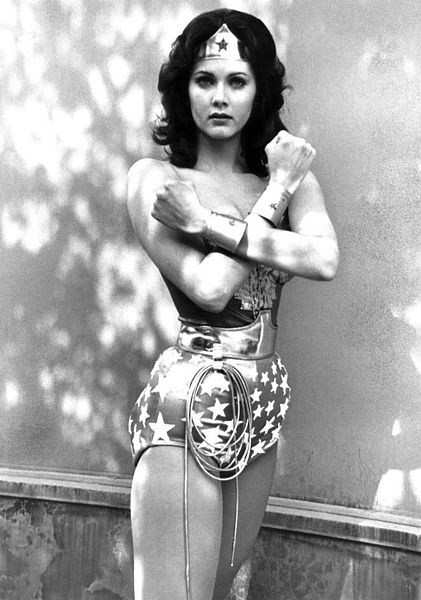By MARLESSA STIVALA
CONTRIBUTING WRITER

I am never one to say no to attending the latest cultural event, whether it be a new museum exhibit or an innovative play. After all, this is New York City, and living here definitely has its advantages, one of my favorites being how often such events are going on each and every day. Thus, when my friends asked me to attend a film festival with them a few weeks ago, I immediately said yes. As it turned out, the event in question was the Athena Film Festival, the third annual celebration of female leadership, both on and off-screen. Though it was in February, I saw it as the perfect prelude for a month long celebration honored each year in March: Women’s History Month.
Running from Feb. 7-10 at Barnard College this year, the Athena Film Festival consisted of everything from feature films such as the Oscar-nominated Beasts of the Southern Wild, to lesser-known documentaries and shorts, all revolving around this same theme of women’s leadership. Proving it to be an interactive, engaging weekend as well as an entertaining one, the festival also featured a number of workshops such as “American Film Institute Workshop from Script to Screen: Producing a Short Film” and panel discussions such as “In Her Voice: Women Directors Talk Directing.” Though such workshops and panels would have undoubtedly been wonderful, highly informative experiences, they were not the aspects of the festival I attended.
While the festival ran for four days, my friends and I were unfortunately only able to attend on Saturday, Feb. 9th (chalk it up to a mixture of Fordham’s infamous first true snow storm of the school year and homework). Fortunately for me, the day we went included the film that most sparked my interest as I learned about the event: a film entitled “WONDER WOMEN! The Untold Story of American Superheroines.”
I will confess that I am personally a huge Wonder Woman fan, so learning that the Athena Film Festival was screening a film that would heavily stem from the character’s evolution and continuing legacy was very interesting for me. As the film’s title implies, it chronicled the history and impact of the most iconic female superhero. Simultaneously, other notable fictitious females such as Xena and Buffy were mentioned. Of course, the greater theme here is how these fictional “wonder women” reflect the idea of real-life “wonder women.” Moreover, the past and current struggles of women in America to attain equality and prove that they can be just as strong, intelligent and ambitious as any man.
Directed by Kristy Guevara-Flanagan, the film presented a good balance between chronicling “Wonder Woman the character” while chronicling “Wonder Woman the symbol for women’s rights.” The film contained segments from celebrity figures such as well-known American feminist Gloria Steinem and actress Lynda Carter (who played Wonder Woman in the 1970s TV series). At the same time, the film interviewed everyday “wonder women,” such as a young girl and a hard-working mother, both who have found inspiration in Wonder Woman. That, for me, was the true success of the film. Of course, the way Guevara-Flanagan incorporated actual, classic Wonder Woman comics into her film was interesting.
Ultimately, however, I believe the symbolism behind having someone as notable as Gloria Steinem and a young girl each given the same right to voice their respective opinions brought the point of the film home very well: Wonder Woman is and has always been an iconic symbol for feminine strength and intelligence, but ultimately any woman can prove to be a “wonder woman” in her own life, too, and that every woman deserves the right to pursue her goals and achieve her highest potential.
The second screening I attended that night was comedian Bonnie McFarlane’s documentary “Women Aren’t Funny.” The documentary was a humorous look at the stereotype that women are not as funny as men, whether on-screen, on stage or in real-life social interactions. The documentary follows McFarlane, along with her husband and fellow comedian Rich Vos, on a quest to interview an array of comedians, club owners and writers to find out their views on why such a negative stereotype exists. While dealing with this specific stereotype, the documentary inevitably highlights general gender biases, such as the idea that women are more likely to fall for a funny guy than a man is to fall for a funny woman. The documentary felt a bit repetitive and dragging at points, but was nonetheless enjoyable. After all, when one thinks about it, this stereotype is highly relevant. How many “class clowns” in elementary school were girls? How many female comedians can you name? How many all-female movie comedies can you mention? The answer to such questions is usually that it is not a lot, as the documentary explores.
Adding to the interactive aspects of the Athena Film Festival is the fact that both “WONDER WOMEN” and “Women Aren’t Funny” were each followed by Q&A sessions. The former featured director Kristy Guevara-Flanagan and two of the everyday “wonder women” interviewed, while the latter featured Bonnie McFarlane and Rich Vos. The festival was ultimately a very enjoyable, worthwhile experience and an event I would definitely enjoy attending again next year. Even though this particular event has passed, March is still Women’s History Month, thus thinking about the issues discussed in the festival’s films are just as prevalent as ever and forces one to remember that “history is her story, too.”







































































































































































































